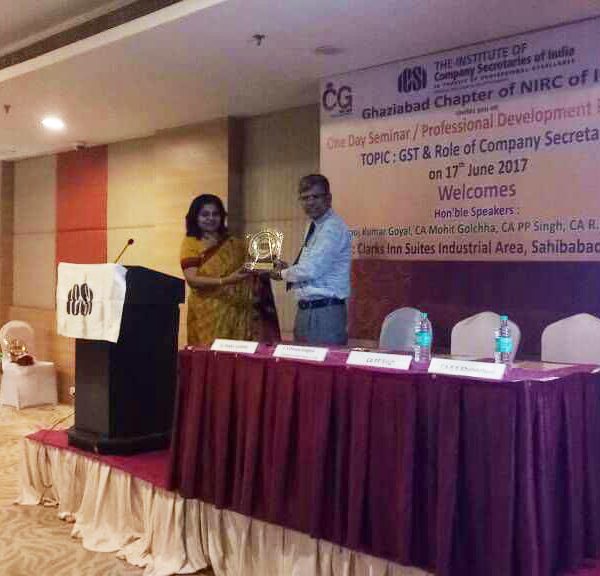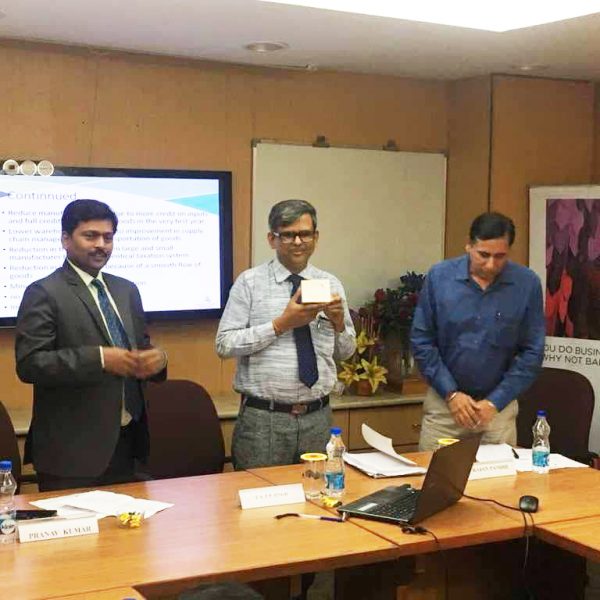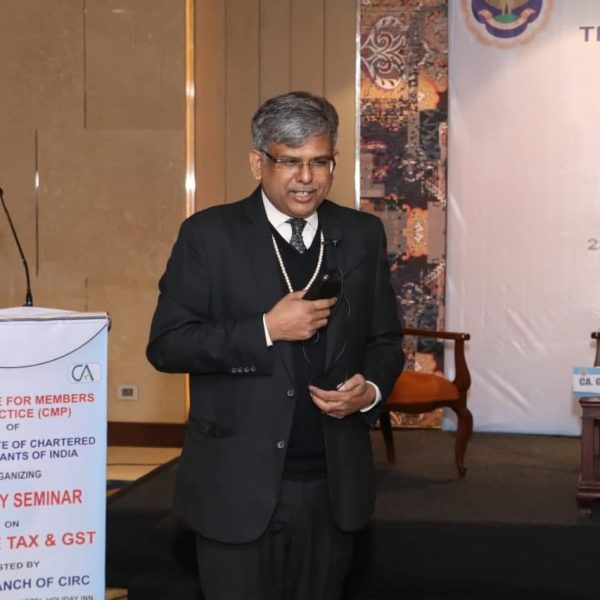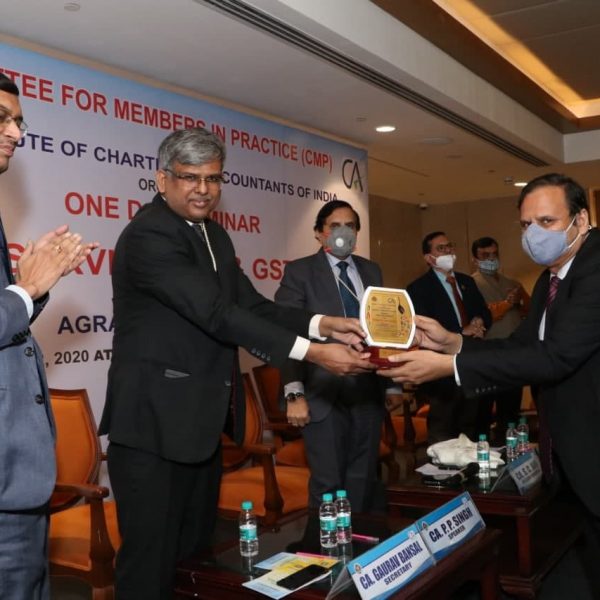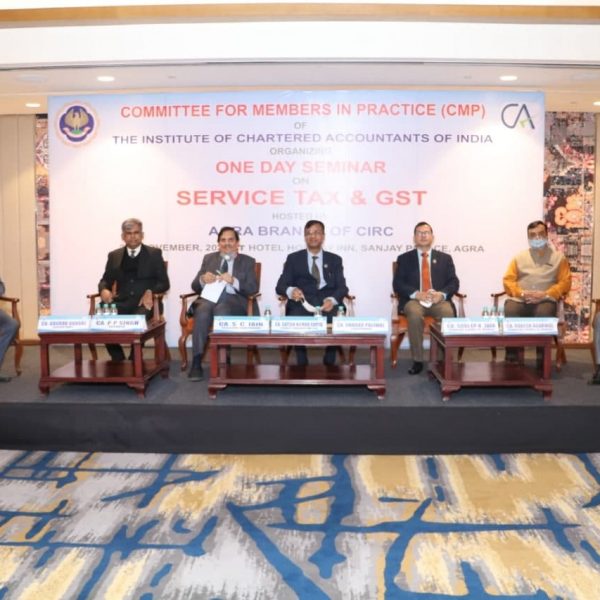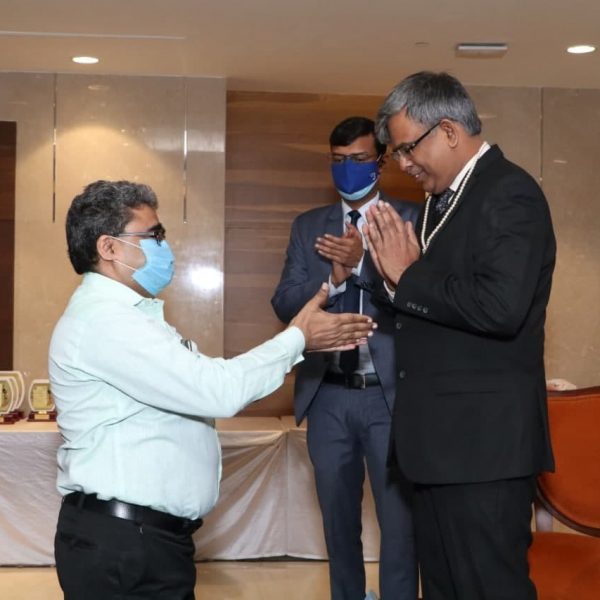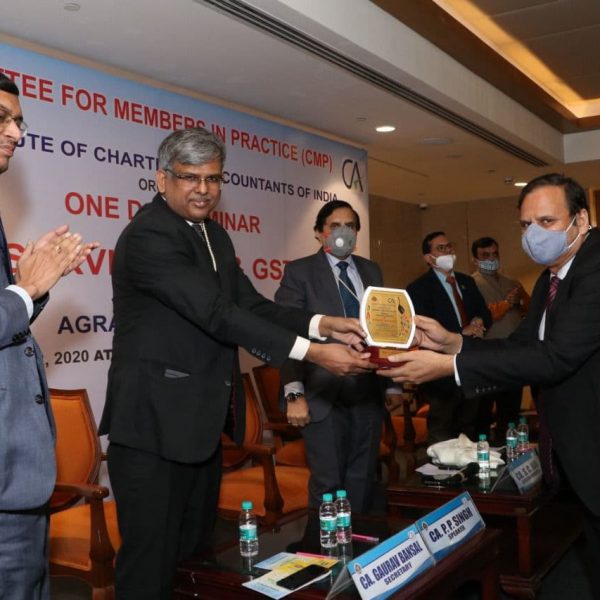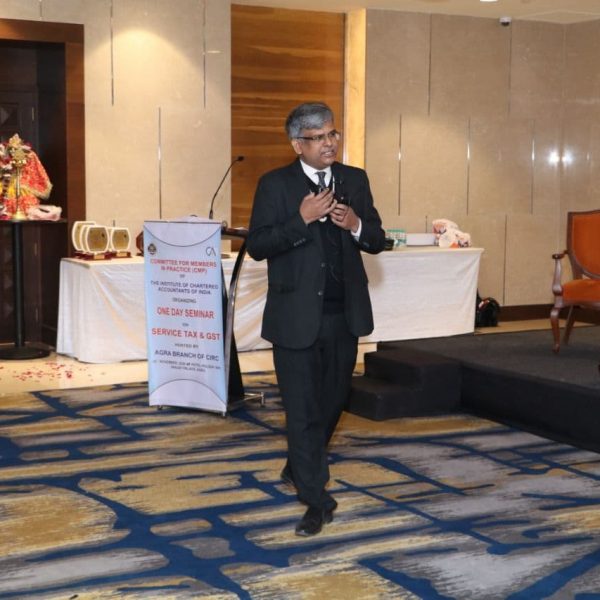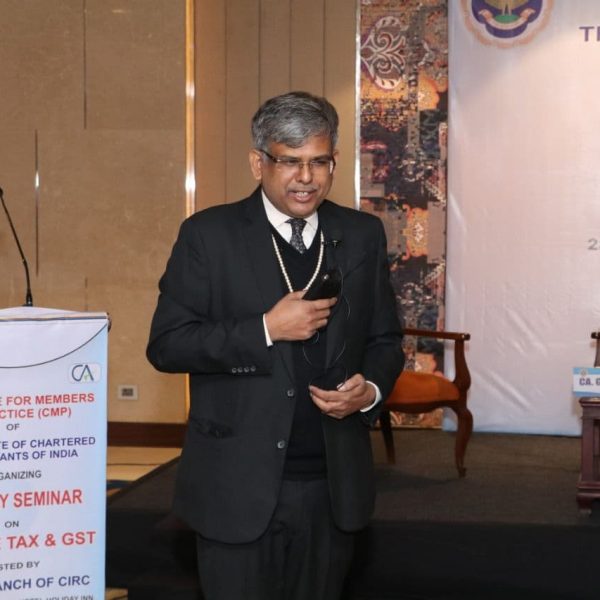Important Points while preferring Appeal before CIT(A)
Table of contents
-
- appealable orders -section 246A
- time limit for preferring appeal- within 30 days of communication of order
- Condonation of delay and important grounds for condonation of delay.
- form-35
- Grounds of Appeal
- Additional ground/ fresh claim before appellate Authority See 250 (5)
- Statements of facts relevant to the disputes
- fee for filing an Appeal
- Stay of demand application See 220 (6)
- Request to the AO to keep in abeyance the Penalty Proceeding till disposal of Appeal because Penalty is Linked with tax
- Submissions before CIT (A)
- Power of CIT(A) to make further inquiries Sec 250 (4)
- Additional evidences before CIT(A) Rule 46A
- Time limit for disposal of appeal/ request for early hearing
- Powers of CIT(A) Section 251
- Appeal against agreed Additions
- Withdrawal of Appeal
- Special Provisions for Repetitive Appeals
- important legal Principles in appellate Proceedings
Who has the right to appeal?
Any aggrieved Person has the right to appeal, such Person may be the assessee or deductor or Collector of tax. As per section 2 (7), assessee means a person (as defined in sec 2(31) ) by when any tax or any other sum (such as interest, Penalty, fee) is Payable and includes deemed assessee, assessee in default. As per section 166, revenue can recover tax from the beneficiary also even though assessment may be on the representative assessee. Every representative assessee is an assessee under this Act. in case of the death of an individual assessee, a legal heir may prefer an appeal. Similarly, an appeal may be preferred by an agent, representative assessee, successor, or any other authorized person. in the case of death, or adjudicated insolvent or winding up of the company, the appeal filed will not abate but continue against the executor, administrator, assignee, receiver, liquidator, or other legal representative, etc.
Fee for appeal
| S. No. | Total Income determined by the AO | Appeal Fee |
| 1 | Assessed total income Rs.1 lakh or less | Rs 250.00 |
| 2 | Assessed total income of more than Rs.1 lakh but not more than 2 lakhs | Rs 500.00 |
| 3 | Appeals involving total assessed income More than Rs.2 lakhs | Rs 1000.00 |
| 4 | Appeals involving any other matter | Rs 250.00 |
Changes by FA 2023: Appeal before JT. Commissioner (A) could be preferred against the order of AO below the rank of JT. Commissioner, but no appeal before JT. Commissioner (A), if the order is Passed with Prior approval of income tax authority above DCIT i.e. approval of JCIT/addl. CIT/CIT etc.
List of appealable orders- section 246A/246
Appellable order before JT. Commissioner (A) [section 246 (1)(a) to (h)]
- an order of intimation under section 143(1), section 143(3), or section 144, or to the status under which he is assessed;
- an order of assessment, reassessment, or recomputation under section 147;
- an order being an intimation under sub-section (1) of section 200A;
- an order under section 201;
- an order being an intimation under sub-section (6A) of section 206C;
- an order under sub-section (1) of section 206CB;
- an order imposing a penalty under Chapter XXI; and
- an order under section 154 or section 155 amending any of the orders mentioned in clauses (a) to (g):
Appellable order before Commissioner (A) [Section 246A (1)(a) to (r)]
- Assessment orders under different Sections Such as Section 143 (1),143(3) except order Passed on the direction of DRP (in this case Appeal before ITAT) & order referred under section 144 BA,144,147 except order Passed on the direction of DRP (in this case Appeal before ITAT) & order referred under section 144 BA
- assessee denies his liability to be assessed under this IT Act 1961 example. assessment under different residential Status enlarging the scope of total income, or change of head at the time of assessment, change of legal status of a Person such as trust assessed as AOP, etc or any other way denies liability to be assessed.
- assessment or reassessment under 153A except orders Passed on the direction of DRP or orders referred to in section 144 BA upon a search conducted or books of account requisition.
- order under section 92CD(3)
- order of rectification under Section 154 or amendments under Section 155 except the order referred to in Section 144 BA enhancing assessment, reducing refund
- order treating the assessee as an agent of a non-resident under section 163
- in the case of succession of business otherwise on death, where predecessor can’t be found & recovery of tax from Successor or assessment on Successor under sections 170
- an order refusing to recognize the partition of HUF under sections 171
- order under section 201 for failure to deduct tax or pay tax after deduction
- order under section 206C(6A) for for failure to collect tax or pay tax after collection
- refund order under section 237
- order under Section 239A
- order imposing Penalty or enhancing penalty
Non-appealable order
- Order levying interest under section 234A for default in furnishing return, Section 234 B for default in paying advance tax, 234C for deferment of advance tax,
- Order Passed by the Advance Ruling Authority
- Order Passed by Settlement Commission
- Levy of fee under section 234 E for default of TDS or TCs statement
- Condonation of delay [section 249(3)]: if the appellant is prevented by Sufficient cause for not presenting the appeal within time. means Circumstances or reasons causing a delay in filing an appeal such as ill health, death of relevant Person, civil disturbance, wrong advice,non-availability of records such as record seized, Subsequent Judgment of SC, a difference of opinion on the legality of the issue, delay in getting a copy of the order.
Whether it is mandatory to attach a condonation application with an Appeal memo? it is not mandatory to file a condonation Petition with an appeal memo, it Could be filed separately, or if asked by the appellate Authority suitable reply Could be filed. International Air Transport Association Vs Ass. DIT 2017 83 taxmann.com 253 (Mumbai Tri )
Judicial view on condonation
collector, land acquisition Vs. MSt. Katiji (1987) (SC) in Substantial Justice Vs. technical consideration, Substantial Justice to be preferred. delay to be explained, delay in appeal does not provide any benefits, rather a Serious risk of dismissal of the appeal, Judiciary is for removing injustice.
where no prejudice arises to the other side, a liberal approach for condonation may be adopted. The principle of advancing Substantial Justice is of Prime importance. vedabai Alias vaijayanatabai Baburao Patil Vs. Shantaram Baburao Patil and others (2002) 122 Taxmanm 114/253 ITR 798 (SC)
While considering condonation petition consideration must be a Pragmatism and justice-oriented approach rather than a technical approach for explaining every day of delay State of Nagaland Vs. Lipok No AIR 2005 (SC)2191
Ram Nath sao & ors Vs Gobardhan Sao & Ors. 2002 SC Technicality of law should not prevent the court from doing Substantial Justice.
Legal advice honestly sought and actually given must be treated as sufficient cause for the Condonation of delay concord of India Insurance CO ltd Vs Smr. Nirmala Devi [1979] (SC)
While seeking condonation there Should not be any negligence, or inaction on the part of the appellant and the assessee was diligent and bonafide. sufficient cause for Condonation of delay must have a liberal Construction So as to advance Substantial Justice. Ganga sahai Ramswarup Vs ITAT (2004) 271 ITR 512 (All)
Statutory right of appeal must be construed in furtherance of Justice and Liberal meaning given to the expression Sufficient cause. the appellate authority must examine whether there is a good reason for delay and that the appellant did act with reasonable diligence. Sandhya Rani Sarkar Vs Sudha Rani Devi AIR 1978 (SC) 537
If there is a delay in preferring an appeal, the appellant’s authority is not competent to straightway dismiss an appeal filed belatedly. opportunity to explain the delay to the appellant.Markland Pvt Ltd Vs. State of Gujarat AIR (1989) (Guj) 44.
mistake or inaction or negligence of the legal Consultant and no mala fide imputable to the assessee, the delay can be condoned. An innocent Litigant could not be allowed to suffer injustice for the fault of his advocate. Shakti Clearing Agency (p) Ltd Vs. ITO (2003)127 Taxmann 49 Rajkot.
major reasons for delay may be a disturbance in the office of Consultants, delay due to Staff Problem in the office of Consultant, change in consultant, Personal Problem of counsel, Time taken in other remedy, death of counsel/family member, Situation beyond control due to curfew, dispute between Partners/ directors, serious illness of key Person appellant was no way responsible for that. In general, an Appeal could be preferred only for disputed liability. In the appeal memo form 35 we have to mention the total addition to the returned income, disputed addition, and disputed demand of tax.
Payment of admitted tax: As per Section 249(4) before filing an appeal, admitted tax must have been paid. if ITR filed the due tax already must have been paid and if ITR has not been filed an amount equal to Advance tax Payable must have been paid, however, if the appellant has Sufficient cause for not Paying an amount equal to the advance tax, CIT(A) may exempt on Showing good and sufficient reason recorded in writing. If tax is not paid it is a curable defect and an appeal could be admitted on payment of tax.
Statement of Facts (SOF)
- not specifically defined in the Income Tax but it is a statement of important material and relevant facts in a Concise form having bearing to the issue but not evidence by which case to be Proved. Evidence is led at the time of hearing of the case. It Could be prepared based on the principle of Pleading generally under order VI of the CPC 1908.
- it must be clear, lucid, coherent, narrative form, divided into Paragraph
- While Drafting SOF, all important facts related to deduction or exemption or rebate claims must be mentioned.
- important Submissions of facts & documents already Submitted during assessment Proceedings must be mentioned in concise form Such as reference of submission Letter so that Question of additional evidence is ruled out.
- Any factual mistake in the Assessment order and actual facts must be brought on record in SOF.
- Any further development after filing returns, during assessments Proceedings, and after orders must be brought into the record.
- All the facts and acts or events are in date-wise chronological order so that it can be easily understood by appellate authority.
- All the facts must be true and Correct.
- Also required to mention about the appellant, nature of income, Source of income, nature of the business activity, past history having bearing on the case,
- reference of Separate ground of appeal
- important statement related to issues arising from the assessment order such as rejection of books of account, denial of Third Party material, not allowing Cross objection, and not providing copy of a Statement recorded of another Person.
- issue in service of notice and reason thereof causing no opportunity of hearing
- only base facts, no argument.
Ground of Appeal (GOA)
- it is a grievance & cause of action against injustice, which the appellant wants to be addressed by the appellate authority
- All the grievances must be clear, concise, and comprehensive yet Simple is the ground of appeal
- ensure to mention All the grounds, So as to avoid the hassle of additional grounds of appeal.
- Avoid arguments in GOA , only dispute and relief sought from appellate authority should be in the grounds of appeal.
- language Should be firm and persuasive and convey the grievance and feeling of injustice but not intemperate or strong language.
- Ground separately numbered.
- No reference to case laws etc in the GOA
- Grievance based on Substantial Question of law
- Technical issues such as time-barred, lack of Jurisdiction, notice not served, natural Justice lacking, etc must be mentioned.
- cross-examination opportunity, no sharing of incriminating material or Statements recorded of another person and used in the assessment must be mentioned.
- separate ground for each addition or disallowance
- The first ground must be general ground and the last one must be residuary ground so as to modify, alter, and add if required in the future.
- Error in computation etc as separate ground of appeal

